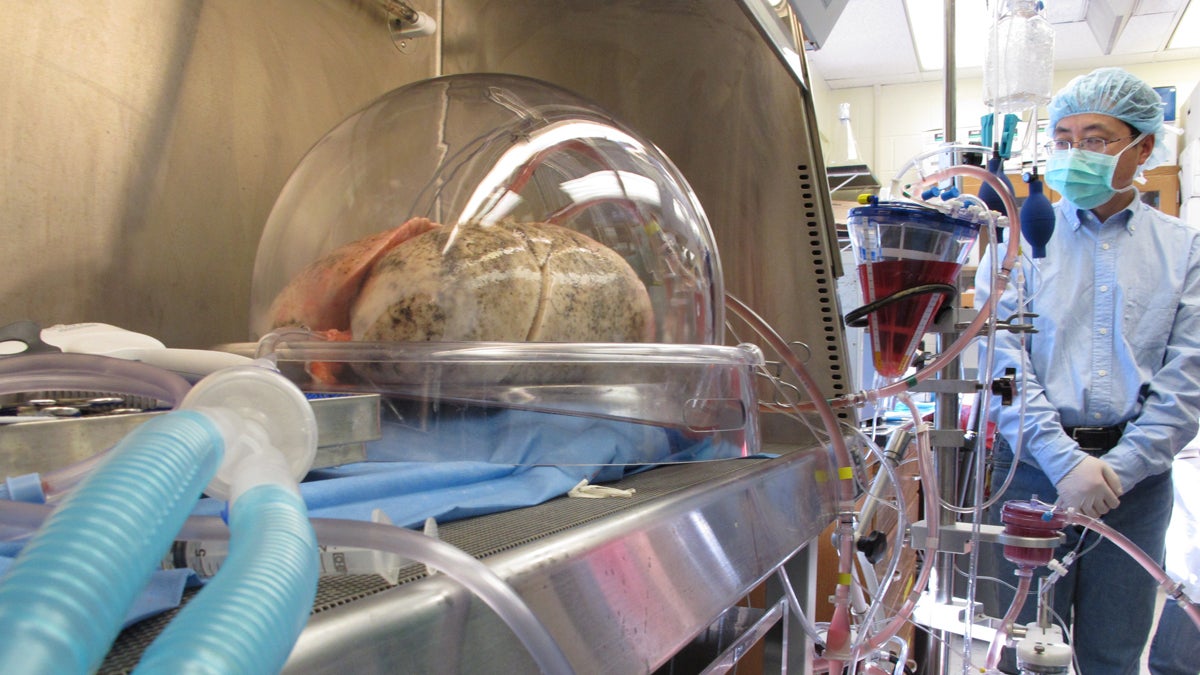Distance an obstacle for veterans needing transplants

In this photo, lungs sit inside a machine as they're ventilated and tested to see if they are healthy enough to transplant (Allen G. Breed/AP Photo)
Location isn’t just important in real estate. A study by researchers at the University of Pennsylvania suggests it’s also important if you need an organ transplant.
A report published today in JAMA found that veterans living more than 100 miles away from one of the five Veteran Affairs transplant centers are half as likely to get on the list for a liver transplant and to receive an organ.
David Goldberg, a study author is a clinical epidemiologist at the University of Pennsylvania. He said that in the end, those vets who are far away are also more likely to die.
“Veterans who live close to a transplant center might be more likely to go home after their discharge from the hospital and not have to relocate,” said Goldberg, “whereas those who are at greater distances would have to relocate with a support person for at least a month after transplant.”
The challenges of long distances can be hard to surmount, especially as travel becomes more difficult as patients become sicker waiting for organs.
While the issue was easiest to study within the VA system, Goldberg said the results might apply to other cases, such as bariatric surgery or proton beam therapy, where specialized services are available only in a few areas.
“The study shows that while centralization of healthcare has many potential benefits, there may be this unintended consequences of decreasing access for certain people who are geographically remote from the healthcare center where it’s being offered,” said Goldberg.
The two closest VA transplant centers to Philadelphia are four or five hours away by car, in Pittsburgh and Richmond, Virginia. David Kaplan, the senior author and Director of Hepatology at the Philadelphia VA, said every year about 15 patients make the trek.
WHYY is your source for fact-based, in-depth journalism and information. As a nonprofit organization, we rely on financial support from readers like you. Please give today.

